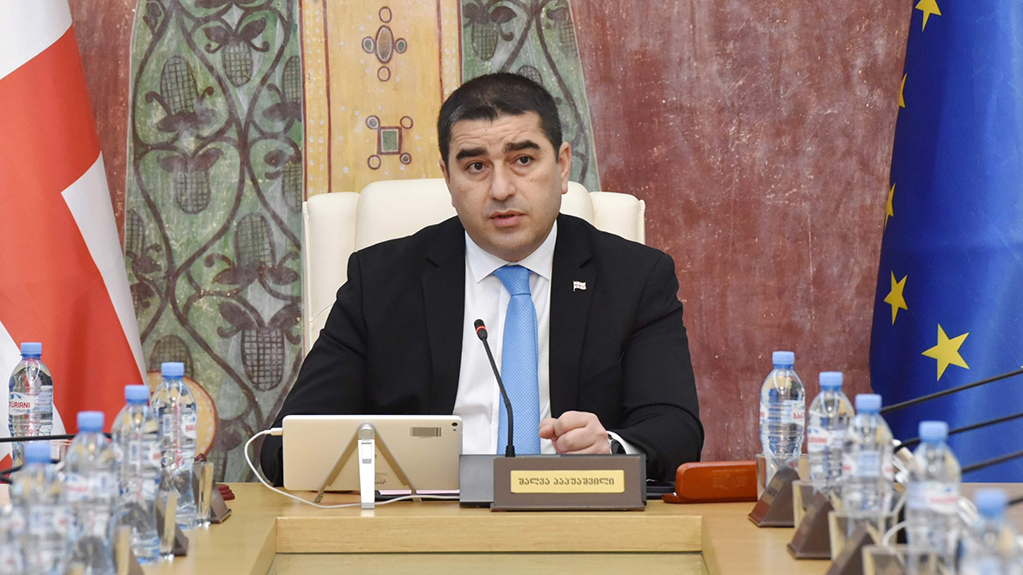The new order by the Chairman of the Parliament of Georgia imposing restrictions on journalists will come into force from March 1. Chairman of the Parliament Shalva Papuashvili introduced the summary of the document to MPs at the Bureau session today. The order obliges journalists to stop an interview if an MP, staff member, or guest of the Parliament objects; also, do not photograph their documents, the screen of the telephone, or other electronic devices in such a way that the information or image on it can be perceived, without their consent.
News
According to the order, if a parliamentary journalist violates the established rules, his/her accreditation may be suspended for a month by the decision of the chief of staff. In case of repetition of the violation, the accreditation of the accredited journalist will be suspended for six months. A journalist of a media outlet with suspended accreditation is restricted from receiving a new accreditation until the expiration of the general period of suspension of accreditation. It is not allowed to replace a journalist, whose accreditation has been suspended in the specified period by the reason which is included in the first paragraph of this article, with another journalist.
"Today I will issue an order regarding journalists' accreditation in the Parliament. As you know, for years there was a certain defect, because we did not have an accreditation rule. Therefore, every time it was necessary to issue journalists a pass and the so-called Parliamentary journalism did not exist.
Parliament Research Center made an analysis of the experience of the parliaments in different countries and based on this best experience, the accreditation rule was made, which is based on two main principles: the first is to support the media to cover everything that is important to the citizens, to cover parliamentary activities, and on the other hand, to ensure a working environment in the parliament", said Shalva Papuashvili.
According to the new order, the legislative body will issue two types of accreditation - for parliamentary journalists and one-day accreditation for those who will need to work in the parliament temporarily.
"Parliamentary journalist accreditation will be given to media representatives who cover parliamentary activities. With the status and accreditation of a parliamentary journalist, they will be able to enter the building and work without hindrance. Also, taking into account that there may be a separate story to be prepared or there may be media that are not accredited, including foreign media, there will be a special accreditation that will work for one day specifically, in order to prepare a certain story or to collect material.
These rules are also based on the European experience of different parliaments. Taking this into consideration, I hope that the status of a parliamentary journalist will return and be recognized, which itself adds more responsibility and more prestige to parliamentary journalism," said Papuashvili.
National broadcasters will have the opportunity to get accreditation for 7 crews, while other TV stations will have a maximum of 3 accredited crews. Newspapers, magazines, and radio will have 2 accredited journalists, and online publications - 4.
Media should apply to the Parliament's office for parliamentary accreditation by February 20.















